The group of companies focuses on growing the business alongside sharing and taking responsibility for society. The company has established policies and guidelines regarding social responsibility, such as respecting laws, cultures, traditions, and universal human rights, ensuring the protection of individual rights, and upholding dignity and respect. This includes non-discrimination based on education, ethnicity, nationality, religion, or gender, as well as supporting employment opportunities for disadvantaged groups and treating workers fairly. The company is also committed to consumer responsibility and actively contributing to community or social development.
Additionally, the company has engaged with various sectors of society to establish projects that support income generation for local communities and organize activities that improve the welfare and quality of life for people in these communities through different initiatives and projects.
Management of Human Rights
The Company adheres to human rights principles from the recruitment process through to employee care, aiming to foster a sense of belonging among all employees and personnel as members of one organizational family. In 2024, the Company did not receive any complaints regarding human rights violations. Furthermore, the Company has undertaken significant employee-related initiatives.
Goal
Forth Corporation Public Company Limited and its subsidiaries are committed to respecting, promoting, and protecting the fundamental human rights of employees, business partners, stakeholders, and the communities in which the Company operates. The Company aims to conduct its operations with fairness, equality, and without discrimination or any form of human rights violation, while also fostering a safe, dignified, and inclusive working environment for all.
Management Approach
- The Company has established a human rights policy that aligns with Thai laws and international principles such as the Universal Declaration of Human Rights (UDHR), the United Nations Guiding Principles on Business and Human Rights (UNGPs), and the International Labour Organization (ILO) standards. Oversight and implementation are carried out continuously through relevant committees and responsible units.
- The Company conducts human rights risk assessments both within its own operations and throughout its supply chain to identify, evaluate, and prevent potential violations. These assessments are regularly reviewed, and the risk management processes are continuously improved.
- The Company provides training and awareness-raising activities on human rights for employees at all levels, as well as education for business partners and suppliers, to jointly promote sustainable respect for human rights.
- The Company provides accessible, secure, and confidential grievance mechanisms to enable employees and stakeholders to report human rights violations with confidence. All complaints are investigated transparently, and fair remedies are provided where appropriate.
- The Company has a system to regularly monitor, review, and report on human rights performance in order to assess progress and utilize the information to continuously improve management approaches.
Employment of persons with disabilities or other disadvantaged groups
Employment
Promotion and Support for Employment of People with Disabilities. The company places importance on improving the quality of life and creating equal opportunities for people with disabilities, in line with the Disability Quality of Life Promotion and Development Act B.E. 2550 (2007) and its amendments (No. 2) B.E. 2556 (2013). People with disabilities are provided with fair compensation, benefits, and rights equivalent to those of other employees. They are also assigned suitable tasks that enable them to work comfortably and safely, allowing them to support themselves and their families.
In 2024, the group supported the employment of people with disabilities in the workplace and hired a total of 11 individuals under Section 33 of the Act.
Let me know if you need further adjustments!
Examples of Social Responsibility Activities (CSR-After-Process) of the Group of Companies
“Missing People, Boonterm Helps Find” Project: This initiative is aimed at raising awareness about missing persons and aiding society. It has been running for the third consecutive year, as part of a collaboration with the Mirror Foundation, to serve as a channel for finding missing people.
“Boonterm Cares for the Earth” Project: This activity involves recycling plastic bottles, where 10,000 empty bottles are transformed into 450 blankets.
“Welfare Fun Fin” Project: This project provides neck, shoulder, and back massages to support visually impaired individuals.
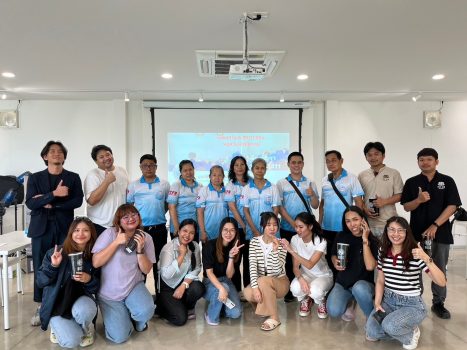
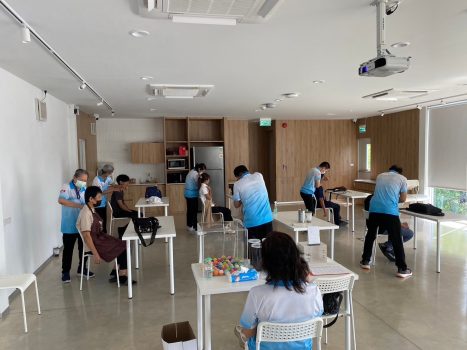
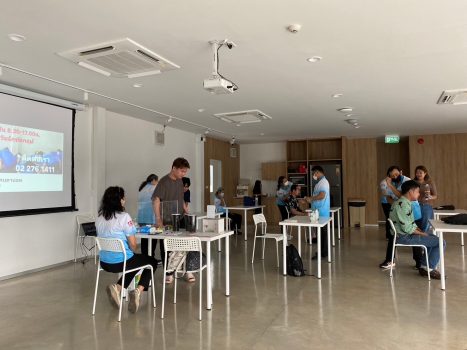
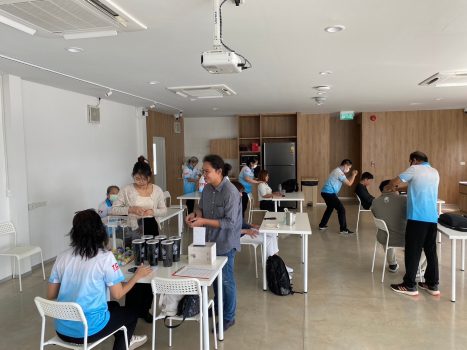
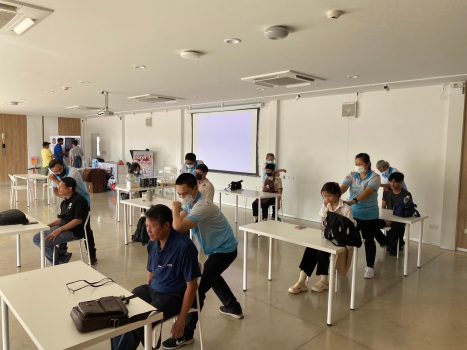
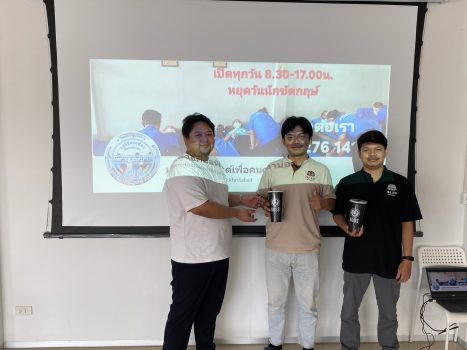
“Welfare Fun Fin” Project: This project provides neck, shoulder, and back massages to support visually impaired individuals.
“Cheerful Box” Project
The group is committed to supporting the empowerment of people with disabilities, enabling them to be self-reliant and improve their quality of life through the “Cheerful Box” project. Every 1-2% of the sales from drinks sold in “Tao Bin” vending machines, part of the 50 machines in the “Cheerful Box” project, will be allocated to support the mission of improving the lives of underprivileged people with disabilities. This initiative is run through Kidkadee Social Enterprise Co., Ltd., a social enterprise established by the Social Innovation Foundation, which leads fundraising efforts and collaborates with partners nationwide to select people with disabilities for the program. The subsidiary company is responsible for installing all the “Tao Bin” vending machines, and the funds raised will drive the mission of assisting people with disabilities to access job opportunities and professions in their local areas, as well as improving living conditions for those with disabilities to enhance their well-being.
Prevention of Child Labor
Forth Corporation Public Company Limited and its subsidiaries place the highest importance on respecting human rights, particularly in preventing the use of child labor. This is a fundamental labor principle that the Company strictly adheres to promote the proper development of youth and prevent exploitation through unfair labor practices.
Operational Guidelines
- Child Labor Prohibition Policy
The Company has a clear policy prohibiting the employment of children below the legal minimum age. It also forbids hiring children to perform work that may affect their safety, health, ethics, or education.
Employee Age Verification
During the recruitment process, the Company strictly verifies and confirms the identity and age of job applicants to ensure that all employees meet the minimum age requirements as stipulated by labour laws.
- Supply Chain Management
The Company establishes guidelines for suppliers and subcontractors, requiring compliance with labour laws related to the prohibition of child labour. Regular supply chain audits are conducted to prevent any indirect involvement with child labour.
- Awareness Raising
The Company conducts training and disseminates information regarding the prohibition of child labour to employees, as well as communicates this policy to its suppliers, in order to jointly elevate ethical standards within the industry.
Monitoring and Reporting
The Company has an internal audit system to regularly assess risks and ensure compliance with the child labour prohibition policy. Additionally, it provides a secure grievance mechanism for anyone who observes actions that violate this policy.